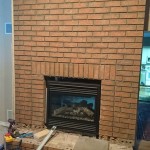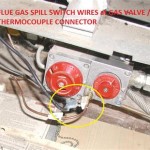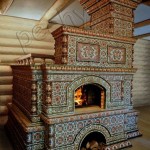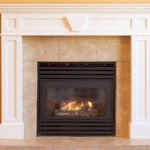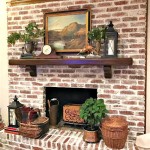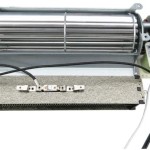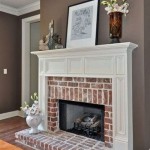Gas Line Fireplaces: A Comprehensive Overview
Gas line fireplaces offer a convenient and aesthetically pleasing alternative to traditional wood-burning fireplaces. These appliances function by burning natural gas or propane delivered through a dedicated gas line. Understanding the components, operation, safety considerations, and maintenance of gas line fireplaces is crucial for homeowners considering installation or those already enjoying their benefits. This article aims to provide a detailed examination of gas line fireplaces, covering key aspects from installation to troubleshooting.
Gas line fireplaces provide instant warmth and ambiance with the flick of a switch, unlike their wood-burning counterparts which require manual labor and produce ash and smoke. The controlled combustion process in gas fireplaces also contributes to improved indoor air quality and reduced environmental impact. Consequently, gas fireplaces have become an increasingly popular choice for residential heating and decorative purposes.
Key Components of a Gas Line Fireplace
A gas line fireplace comprises several essential components that work in concert to ensure efficient and safe operation. These parts include the gas valve, burner assembly, pilot light or electronic ignition system, venting system, and control panel. Each component plays a specific role in the overall functionality of the fireplace.
The gas valve regulates the flow of gas to the burner assembly. This valve can be manually controlled or operated by a remote control or thermostat. Safety features are typically integrated into the gas valve, such as a thermocouple that shuts off the gas supply if the pilot light is extinguished. This safety mechanism prevents the accumulation of unburned gas, mitigating the risk of explosion or carbon monoxide poisoning.
The burner assembly is where the combustion of gas occurs. This assembly is usually constructed from stainless steel or cast iron, designed to withstand high temperatures and provide uniform flame distribution. The design of the burner assembly directly impacts the appearance of the flame and the overall heating efficiency of the fireplace. Different burner styles can simulate the look of a natural wood fire or offer a more modern, linear flame presentation.
The ignition system is responsible for initiating the burning process. Older gas fireplaces often use a pilot light, a small continuous flame that ignites the main burner when gas is supplied. Modern fireplaces frequently utilize electronic ignition systems, such as spark igniters or hot surface igniters, which offer greater energy efficiency and eliminate the need for a constantly burning pilot light. These electronic systems are generally more reliable and require less maintenance than traditional pilot lights.
The venting system is crucial for safely removing combustion byproducts, such as carbon dioxide and water vapor, from the home. Gas fireplaces can be vented in several ways, including direct vent, B-vent, and vent-free options. Direct vent fireplaces draw combustion air from outside and exhaust directly outside, providing a sealed system that minimizes the risk of indoor air contamination. B-vent fireplaces vent through a chimney or flue, while vent-free fireplaces do not require external venting but rely on a catalytic converter to reduce emissions. Vent-free models are subject to local building codes and may not be permitted in all jurisdictions due to concerns about indoor air quality.
The control panel allows users to adjust the flame height, activate the blower (if equipped), and turn the fireplace on and off. Control panels can range from simple manual knobs to sophisticated electronic interfaces with remote control capabilities and programmable timers. Thermostatic controls are often integrated into modern fireplaces providing consistent temperature regulation and energy savings.
Installation and Safety Considerations
Proper installation is paramount for the safe and efficient operation of a gas line fireplace. Installation should be performed by a qualified and licensed professional experienced in gas appliance installation. Improper installation can lead to gas leaks, carbon monoxide poisoning, and fire hazards.
The first step in installing a gas line fireplace is ensuring that the existing gas line is adequately sized to supply the fireplace with sufficient fuel. Overloading a gas line can result in insufficient gas pressure, leading to inefficient operation and potential safety issues. A qualified gas fitter can assess the gas line capacity and make necessary modifications.
The venting system must be installed according to the manufacturer's specifications and local building codes. Incorrect venting can result in the backdrafting of combustion gases into the home. Especially critical is the correct sealing of vent pipes to prevent leaks. Direct vent systems must have properly sealed connections to the exterior to ensure that combustion air is drawn from outside the building envelope.
Carbon monoxide detectors should be installed near any gas-burning appliance. Carbon monoxide is a colorless and odorless gas that can be fatal. Regular testing of carbon monoxide detectors is crucial to ensure they are functioning correctly. Homeowners should be familiar with the symptoms of carbon monoxide poisoning, which include headache, dizziness, nausea, and confusion.
Regular inspection and maintenance of the fireplace are essential for maintaining safety. This includes visually inspecting the gas line connections for leaks, cleaning the burner assembly, and checking the venting system for obstructions. A qualified technician should perform a thorough inspection of the fireplace at least once a year, including checking the gas pressure, testing the safety shutoff mechanisms, and inspecting the venting system.
Furthermore, maintaining a safe distance between combustible materials and the fireplace is essential. Manufacturer's instructions provide minimum clearance requirements for surrounding materials. Curtains, furniture, and other flammable items must be kept away from the fireplace to prevent fire hazards.
Maintenance and Troubleshooting
Regular maintenance can prolong the lifespan of a gas line fireplace and ensure its continued safe and efficient operation. Simple maintenance tasks can be performed by homeowners, while more complex tasks should be handled by a qualified technician.
One common maintenance task is cleaning the glass front of the fireplace. Over time, the glass can accumulate soot and residue, obscuring the view of the flames. Use a specialized glass cleaner designed for gas fireplaces to avoid damaging the glass. Do not use abrasive cleaners or materials that could scratch the glass.
The burner assembly can also accumulate dust and debris, which can affect flame quality and efficiency. Use a vacuum cleaner with a soft brush attachment to remove loose debris from the burner assembly. Carefully clean the burner ports with a small brush or wire to ensure they are not clogged.
Pilot light issues are a common problem with older gas fireplaces. If the pilot light goes out frequently, it may indicate a dirty or faulty thermocouple. The thermocouple is a small metal rod that senses the heat from the pilot light and keeps the gas valve open. A faulty thermocouple will shut off the gas supply if the pilot light is not detected. A qualified technician can replace a defective thermocouple.
If the fireplace is producing unusual odors or soot, it could indicate a venting problem or incomplete combustion. Inspect the venting system for obstructions and ensure it is properly sealed. A qualified technician can diagnose and repair venting issues. Incomplete combustion can result from a clogged burner assembly, inadequate gas pressure, or a malfunctioning air shutter. These problems should be addressed by a qualified technician.
Unusual noises coming from the fireplace, such as clicking or hissing sounds, may indicate a gas leak. Immediately shut off the gas supply to the fireplace and contact a qualified gas fitter to inspect the gas line and connections. Never attempt to repair a gas leak yourself.
If the fireplace is equipped with a blower, the blower motor may require periodic maintenance. Clean the blower motor and fan blades to remove dust and debris. Lubricate the blower motor bearings if necessary. A faulty blower motor can result in reduced airflow and overheating.
Addressing these key components, installation and safety measures, and maintenance practices will contribute to the safe and consistent operation of a gas line fireplace, providing warmth and ambiance for years to come. Proper upkeep and understanding of the system are key to enjoying the benefits of a gas fireplace without compromising safety.

Fireplace Gas Line Installation In Whittier

Lp Gas Line Clearance Plumbing Inspections Internachi Forum

Remove A Gas Fireplace Merrypad

O Malia S Living Blog Page

Fireplace Installation Instructions Diamond Fire Glass

Flexible Appliance Connector In Fireplace Plumbing Inspections Internachi Forum

Gas Fireplace Easy Install How To Run Your Line

Fireplace Gas Line Installation Service Chimcare

How To Install A Log Lighter Fireplace Gas Starter Pipe
.png?strip=all)
How To Install A Log Lighter Fireplace Gas Starter Pipe
Related Posts

